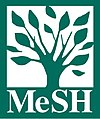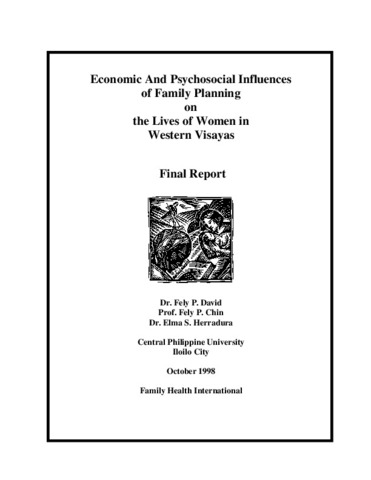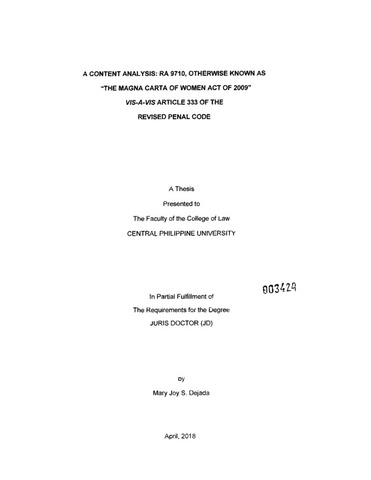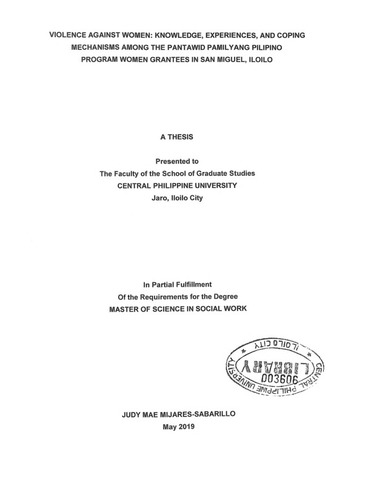Breast self-examination among women in a rural community: Knowledge, health beliefs and practices
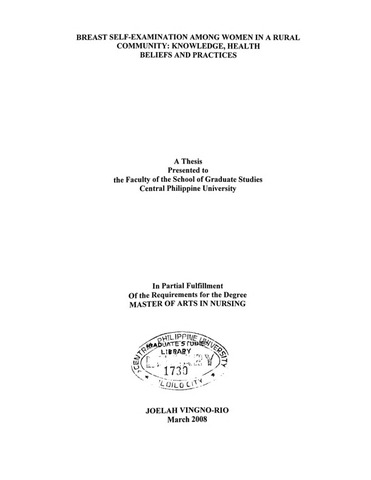
Page views
1,163Petsa
2008May-akda
Tagapangulo ng Panel ng Depensa
Magbahagi
Metadata
Ipakita ang buong tala ng item
Abstract
The objectives of this study were to determine the knowledge about breast cancer and BSE, how it varies in terms of women’s characteristics like age, educational attainment and civil status. To determine whether their perceptions on their susceptibility to, on the seriousness of breast cancer, on benefit of and on barriers to BSE practices were significantly associated with their knowledge. To determine whether the respondent’s BSE practices was significantly associated with their characteristics, knowledge and perceptions about breast cancer and BSE.
This is a descriptive-relational study and used one-shot survey design. This was conducted in Barangay Jalaud Norte, Zarraga, Iloilo - one of the communities in Iloilo province where Central Philippine University College of Nursing had their community health nursing affiliation. The respondents were 159 women, age 20 - 60 years old who were randomly pick from the Barangay household list. The interview schedule composed of three sections -the first, were asked the demographics of the respondent, the second, asked about the respondent’s knowledge about breast cancer and BSE, the third, asked about their perceived susceptibility to and perceived seriousness of breast cancer, their perception on the benefits of BSE and their perceived barriers to BSE. In this section, Champion’s Health Belief Model Scale was used, the fourth, asked about the respondent’s BSE practices.
To determine the variations in the level of knowledge, the extent of perceptions and the respondent’s characteristics like age, civil status, educational attainment and family history of cancer, Z-test was used. Chi-square was used to determine the relationship between the respondent’s characteristics, level of knowledge, perceptions and BSE practices.
The average age of the respondents were 40 years old, all of them had attended formal schooling. More than two-thirds were married and no family history of breast cancer or any other form of cancer. More than half have sufficient knowledge about breast cancer and BSE however, more than two-thirds of the respondents are not aware that overweight and obese individuals are high risk of developing breast cancer while almost two-thirds were not aware that aging contributes to their risk of having the disease. Almost the same proportions of respondents have a misconception that breast cancer only affects women and that only doctors and nurses can examine their breast well. Their knowledge about breast cancer and BSE significantly varies with educational attainment and civil status
The majority of the respondents perceived moderate susceptibility to breast cancer, perceived breast cancer as a serious condition, perceived BSE as highly beneficial and perceived moderate barriers to BSE performance. Barriers to BSE performance that were identified includes; lack of time to perform BSE and lack of knowledge on how to do it. Their perceived susceptibility to breast cancer significantly varies with educational attainment. On their perceived seriousness of breast cancer, it significantly varies with age, educational attainment and civil status. Perceived benefits of BSE and perceived level of barriers to BSE significantly vary with age and educational attainment. The study shows however, that women’s perceptions are not significantly associated with their level of knowledge on breast cancer and BSE.
Most of the respondents practice BSE but very few do it correctly and regularly. BSE performance shows a significantly association with perceived benefit of BSE and perceived barriers to BSE but does not show a significant association however, with the respondent’s age, educational attainment, civil status, family history of cancer, level of knowledge about breast cancer and BSE, perceived susceptibility to and perceived seriousness of breast cancer.
Paglalarawan
Abstract only
Mungkahing Sipi
Rio, J. V. (2008). Breast self-examination among women in a rural community: Knowledge, health beliefs and practices (Unpublished Master's thesis). Central Philippine University, Jaro, Iloio City.
Uri
ThesisMga Paksa
Mga keyword
Kagawaran
School of Graduate StudiesDegree
Master of Arts in NursingLokasyon ng Istante
GSL Theses 610.73072 R476
Pisikal na paglalarawan
xv, 84 leaves
Collections
Mga parehong item
Ipinapakita ang mga item na nauugnay sa pamagat, may-akda, tagalikha at paksa.
-
Economic and psychosocial influences of family planning on the lives of women in Western Visayas: Final report
David, Fely P.; Chin, Fely P.; Herradura, Elma S. (Family Health International (FHI) and Central Philippine University, 1998-10)This study was conducted by the Social Science Research Institute (SSRI), Central Philippine University, in collaboration with the Women’s Resource Center (WRC), between 1995 and 1997 in order to determine the ... -
A content analysis: RA 9710, otherwise known as “The Magna Carta of Women Act of 2009” vis-à-vis Article 333 of the Revised Penal Code
Dejada, Mary Joy S. (2018)A content analysis was conducted to determine the effectiveness of RA 9710, otherwise known as “The Magna Carta of Women Act of 2009” in relation to Article 333 of the Revised Penal Code (RPC). This study sought to determine ... -
Violence against women: Knowledge, experiences, and coping mechanisms among the Pantawid Pamilyang Pilipino Program women grantees in San Miguel, Iloilo
Sabarillo, Judy Mae Mijares (2019)This study focused on the level of knowledge, major form of violence against women (VAW) experienced, and coping mechanisms on VAW among the Pantawid Pamilyang Pilipino Program women grantees in San Miguel, Iloilo. This ...


